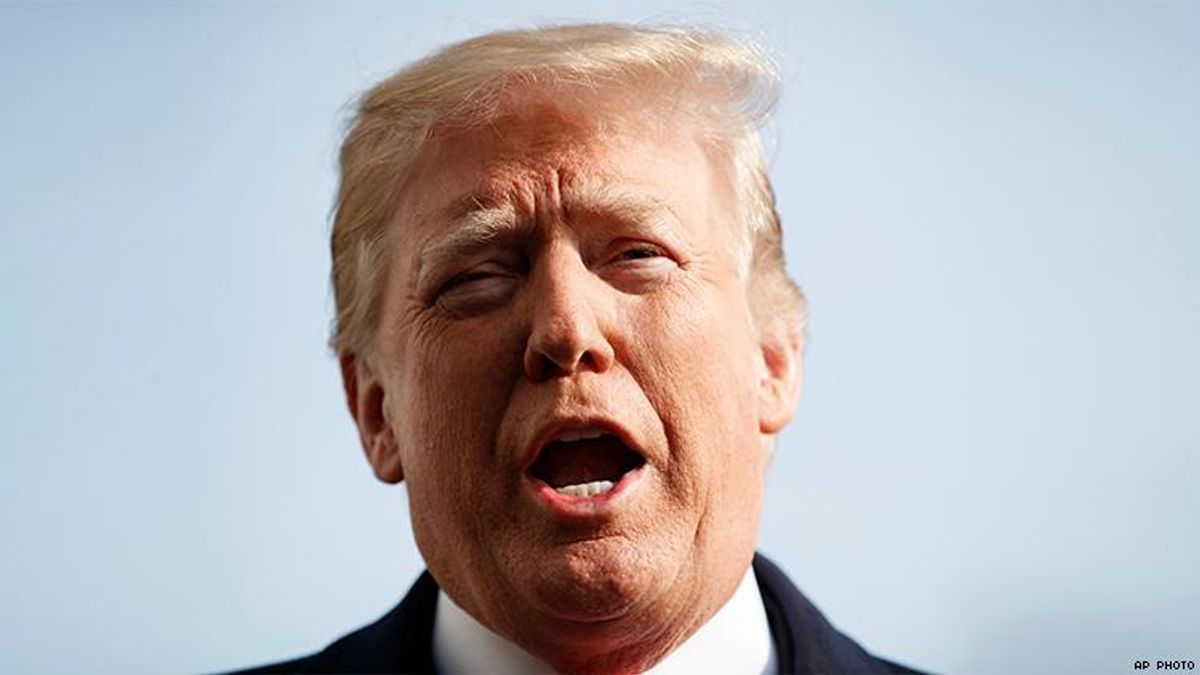Seeing Donald Trump in jail would be a dream come true for many Americans -- and according to the incoming chairman of the House Intelligence Committee, it's a very real possibility.
"My takeaway is there's a very real prospect that on the day Donald Trump leaves office, the Justice Department may indict him. That he may be the first president in quite some time to face the real prospect of jail time," U.S. Rep. Adam Schiff said Sunday on CBS's Face the Nation. Schiff, a California Democrat, will chair the committee when the House reconvenes with a Democratic majority in January.
The basis for Schiff's comment is the sentencing document released Friday by the U.S. attorney for the Southern District of New York, recommending a "substantial term of imprisonment" for Trump's former personal lawyer, Michael Cohen, for making payments to silence two women about their alleged sexual relationships with Trump.
The payments, which violated campaign finance laws, were made at Trump's behest, according to Cohen, and with the intention of influencing the 2016 presidential election. The argument for jailing Cohen, Schiff said, was "equally made with respect to Individual-1, the president of the United States."
Many legal experts say a sitting president cannot be indicted due to the damage it would cause the U.S. government. The Department of Justice is going by this guidance, so that's why any criminal charges against Trump would have to wait until he's out of office. But some elected officials say that could come sooner rather than later.
U.S. Rep. Jerrold Nadler of New York, who is likely to chair the House Judiciary Committee when Democrats take control, said on another Sunday news program that if it's proven that Trump directed the payments, that would be an impeachable offense. Congress would have to judge whether it's an important enough offense to bring articles of impeachment, he said on CNN's State of the Union. Impeachment is an attempt to change the results of the previous election, and proceedings should be launched "only for very serious situations," he explained.
The payments, Nadler added, appear to be part of "a much broader conspiracy against the American people," also involving dealings with Russia in an an effort to influence the election in Trump's favor. Congress, the special counsel's office, and the Department of Justice will scrutinize all of these things, he said. With Republicans controlling both chambers of Congress, they have tried to shield Trump, he said, but when Democrats control the House, they will instead try to uncover the truth. (Republicans will still hold a majority in the Senate.)
Jennifer Rubin, a columnist for The Washington Post, posits another scenario. She thinks Trump will resign shortly before his term is up so that Mike Pence will become president and pardon him for any criminal offenses.
Trump "risks being prosecuted after he leaves office," she told guest host Jonathan Capehart Sunday on MSNBC's AM Joy. "I would predict here on MSNBC that when Trump leaves office he will resign the presidency 10 minutes before Mike Pence leaves office, allowing Pence to pardon him if there is not a Republican president to follow him."
Some political observers, however, think Pence could face indictment too. In any case, there does seem to be a possibility that the administration could be brought down. That would certainly be welcome news to all those who have been affected by its efforts, many of them successful, to undo the progress made under President Barack Obama, on LGBTQ issues, women's rights, immigration, and more. Some commentators, though, like E.J. Dionne, who also appeared on AM Joy, think it would be better to let the electoral process take care of driving Trump from office -- after which he could be indicted. Watch below.


















































































